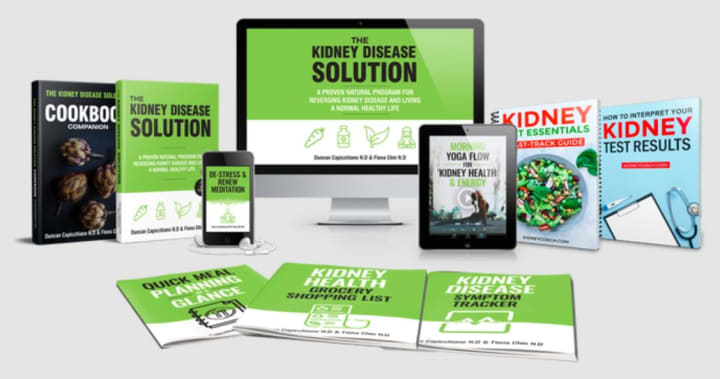Unlocking the Secrets to Reversing Kidney Diseases
A Comprehensive Guide

Understanding the Alarming Rise of Kidney Diseases Worldwide
Chronic kidney disease (CKD) is a major public health concern, affecting millions of people worldwide. According to the latest statistics, around 10% of the global population is living with some form of kidney disease. In the United States alone, an estimated 37 million adults are affected by CKD, and millions more are at risk due to various factors. The prevalence of kidney failure, also known as end-stage renal disease (ESRD), has been steadily increasing over the past decades. In the United States, the number of people with ESRD has more than doubled since the 1990s, with over 800, 000 individuals currently receiving dialysis or living with a kidney transplant. The risk factors for kidney disease are numerous and include diabetes, high blood pressure, cardiovascular disease, obesity, and a family history of kidney problems. Diabetes and hypertension are the leading causes of CKD, accounting for over two-thirds of all cases. Alarmingly, the increasing rates of obesity and sedentary lifestyles are contributing to the rise in these risk factors, further exacerbating the burden of kidney disease. Early detection and management of CKD are crucial in slowing the progression of the disease and preventing complications. However, many individuals with CKD remain undiagnosed due to the lack of specific symptoms in the early stages. Regular screening and awareness campaigns are essential to identify those at risk and initiate timely interventions. The economic and societal costs associated with kidney disease are staggering. The treatment of ESRD alone accounts for a significant portion of healthcare expenditures in many countries. Moreover, the impact on individuals' quality of life and productivity cannot be understated, as kidney disease often leads to disability, reduced employment opportunities, and a decreased overall well-being. Addressing the global burden of kidney disease requires a multi-faceted approach involving public health initiatives, policy changes, and collaborative efforts from healthcare professionals, researchers, and policymakers. Promoting healthy lifestyles, early screening, and access to quality care are crucial steps in combating this growing public health crisis.
The Surprising Causes of Kidney Diseases You Need to Know
Kidney disease is a serious and often silent condition that can have devastating consequences if left untreated. Understanding the common causes of kidney disease is crucial in taking preventive measures and seeking timely medical intervention. One of the leading causes of kidney disease is diabetes. When blood sugar levels are consistently high, it can damage the tiny blood vessels in the kidneys, leading to a condition called diabetic nephropathy. This can eventually impair the kidneys' ability to filter waste from the body effectively. High blood pressure, or hypertension, is another significant contributor to kidney disease. The increased force of blood flow can damage the delicate filtering units in the kidneys, known as nephrons. Over time, this can lead to scarring and impaired kidney function. Polycystic kidney disease (PKD) is an inherited disorder characterized by the formation of numerous cysts in the kidneys. As these cysts grow, they can interfere with the kidneys' ability to filter waste and produce urine, ultimately leading to kidney failure. Glomerulonephritis is a group of diseases that cause inflammation and damage to the tiny filtering units in the kidneys, called glomeruli. This condition can be triggered by various factors, including autoimmune disorders, infections, or exposure to certain toxins. Early detection and management of these underlying conditions are crucial in preventing or slowing the progression of kidney disease. Regular check-ups, maintaining a healthy lifestyle, and adhering to prescribed medications can significantly reduce the risk of developing kidney complications. By understanding the common causes of kidney disease, individuals can take proactive steps to protect their kidney health and potentially avoid the need for dialysis or kidney transplantation.
Proven Strategies to Prevent and Manage Kidney Diseases Naturally
Kidney disease is a serious health concern, but there are several steps you can take to help prevent or manage it. One of the most effective ways is through dietary changes. Focus on a diet low in sodium, processed foods, and saturated fats, while increasing your intake of fresh fruits, vegetables, whole grains, and lean protein sources. Staying hydrated by drinking plenty of water is also crucial for kidney health. Exercise is another key factor in maintaining kidney function. Regular physical activity, even moderate exercises like brisk walking or swimming, can help regulate blood pressure and improve overall cardiovascular health, both of which are essential for healthy kidneys. Stress management is equally important. Chronic stress can contribute to inflammation and other issues that can strain your kidneys. Incorporate relaxation techniques like meditation, yoga, or deep breathing exercises into your routine to help manage stress levels. Additionally, certain supplements may provide support for kidney health. Omega-3 fatty acids, vitamin D, and probiotics have been shown to have potential benefits for kidney function. However, it's important to consult with a healthcare professional before starting any new supplement regimen. By making these lifestyle changes and prioritizing kidney health, you can take proactive steps towards preventing or managing kidney disease and promoting overall well-being.
Learn how over 25 000 people have lowered creatinine levels and increased GFR

Cutting-Edge Treatments and Therapies for Reversing Kidney Damage
While there are various treatment options available for kidney disease, it's crucial to understand that early intervention and a proactive approach can significantly improve outcomes. Medications play a vital role in managing symptoms and slowing the progression of kidney damage, but they are not a cure. Dialysis, whether hemodialysis or peritoneal dialysis, is a life-sustaining treatment that filters waste and excess water from the blood when the kidneys can no longer perform this function effectively. However, kidney transplantation offers the best chance for restoring kidney function and improving quality of life. With advancements in surgical techniques and immunosuppressive drugs, kidney transplants have become increasingly successful, allowing recipients to live a more normal life without the need for dialysis. Additionally, regenerative medicine holds promise for the future, with ongoing research exploring stem cell therapies and tissue engineering techniques to repair or replace damaged kidney cells. While the prospect of a kidney transplant or experimental treatments may seem daunting, it's essential to have an open and honest discussion with your healthcare team. They can provide personalized guidance based on your specific condition, preferences, and overall health status. With the right treatment plan and a proactive approach, many individuals with kidney disease can manage their condition effectively and maintain a good quality of life.
Real Stories of People Who Have Successfully Overcome Kidney Diseases
Kidney disease can be a daunting challenge, but there are countless inspiring stories of individuals who have overcome the odds and regained their kidney health. From implementing dietary changes and lifestyle modifications to exploring cutting-edge treatments, these remarkable case studies demonstrate the power of perseverance and a proactive approach to managing kidney disease. One such story is that of Sarah, a 45-year-old mother of two who was diagnosed with chronic kidney disease stage 3. Through a combination of strict dietary adjustments, regular exercise, and close monitoring of her kidney function, Sarah was able to slow the progression of her condition and even reverse some of the damage. Her dedication and commitment to her health paid off, and today, she enjoys a high quality of life without the need for dialysis or transplantation. Another inspiring case is that of Michael, a 62-year-old retiree who was facing end-stage renal disease. Determined to explore every option, Michael underwent a groundbreaking stem cell therapy that aimed to regenerate his damaged kidney cells. After a grueling but successful treatment, Michael's kidney function improved significantly, and he was able to avoid dialysis altogether. These stories, along with countless others, serve as a powerful reminder that kidney disease is not an insurmountable obstacle. With the right mindset, support system, and medical interventions, it is possible to not only manage the condition but also experience remarkable improvements in kidney health.
Start Your Journey to Kidney Wellness Today - Don't Wait Until It's Too Late. Click here to start now
This article contains affiliate links that help us write articles like this and make small commissions when you buy using the links
About the Creator
Enjoyed the story? Support the Creator.
Subscribe for free to receive all their stories in your feed. You could also pledge your support or give them a one-off tip, letting them know you appreciate their work.





Comments
There are no comments for this story
Be the first to respond and start the conversation.